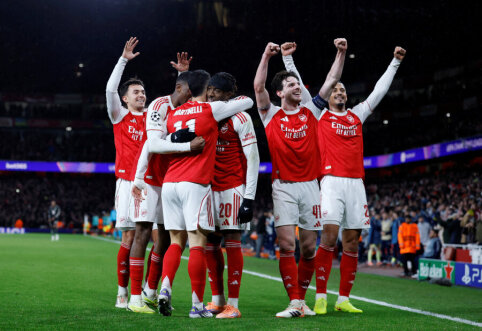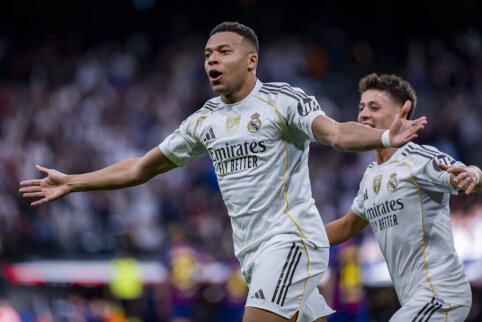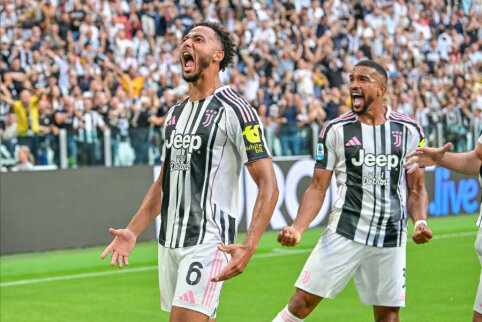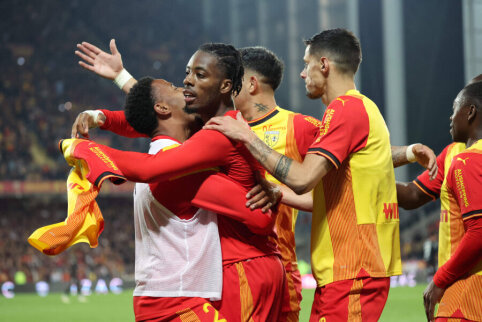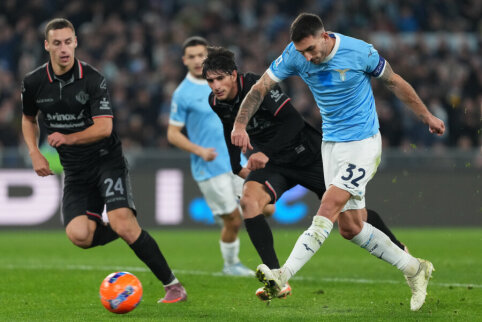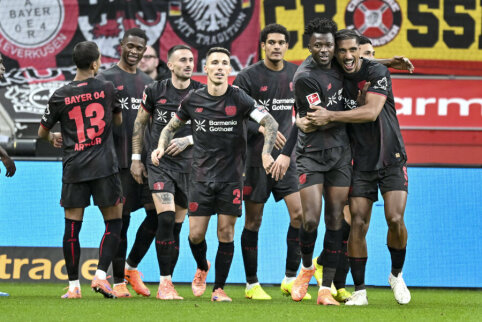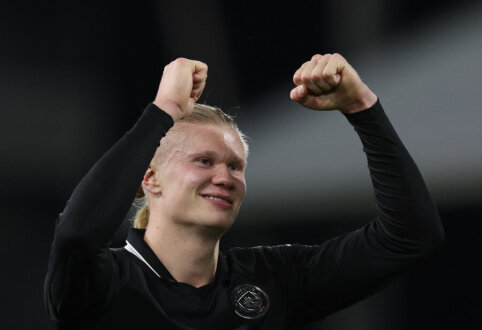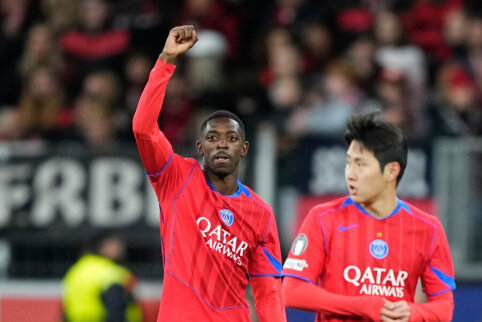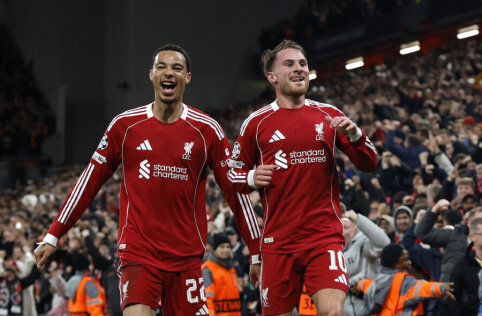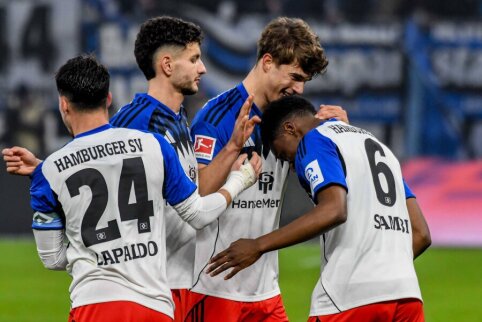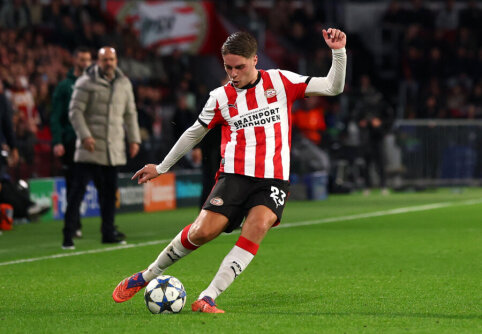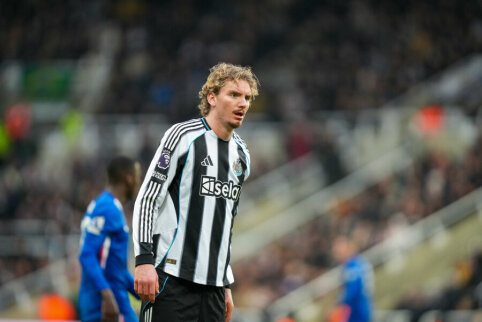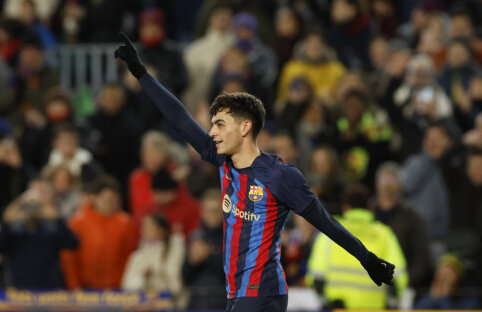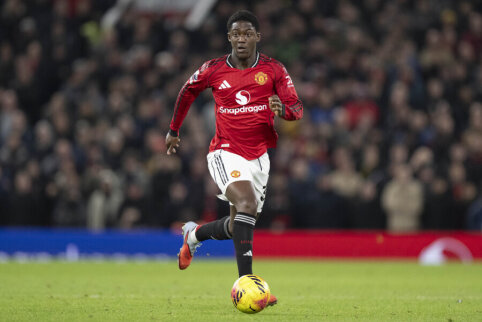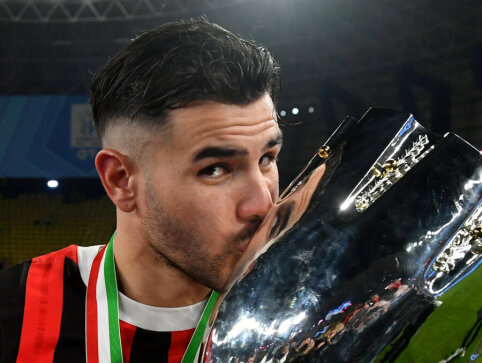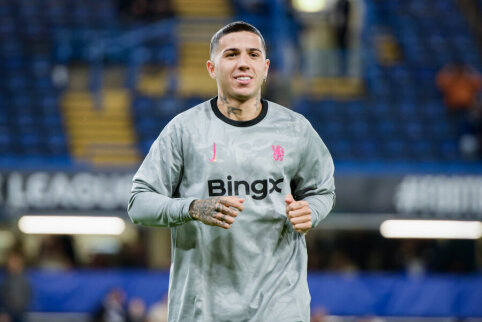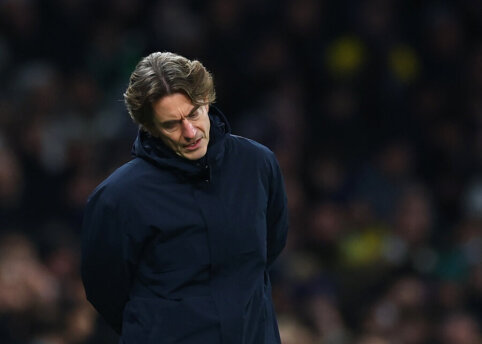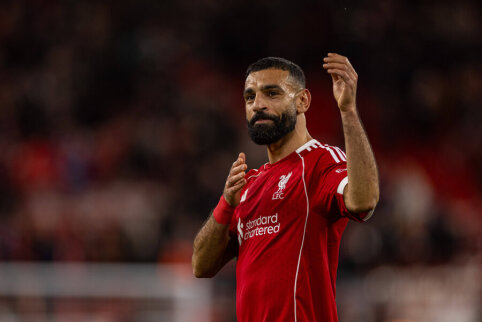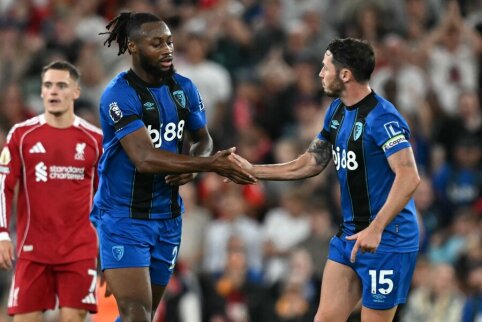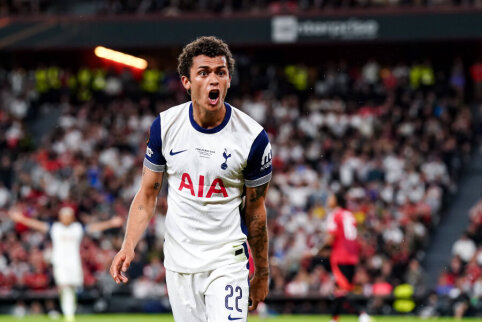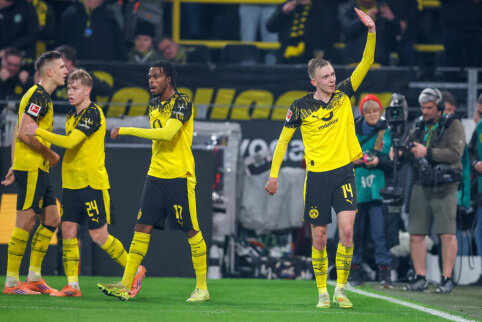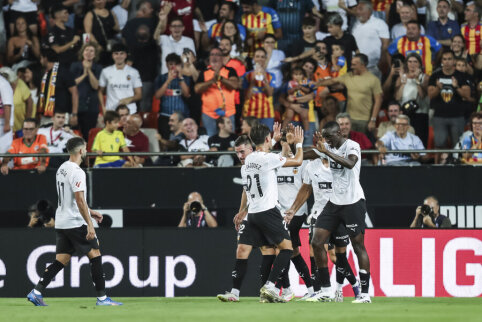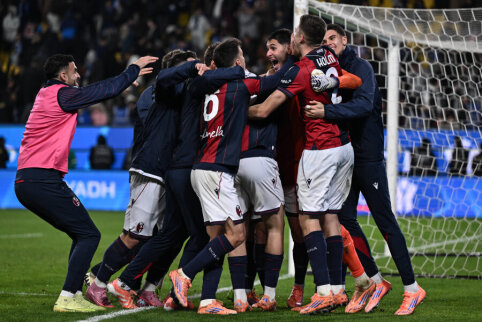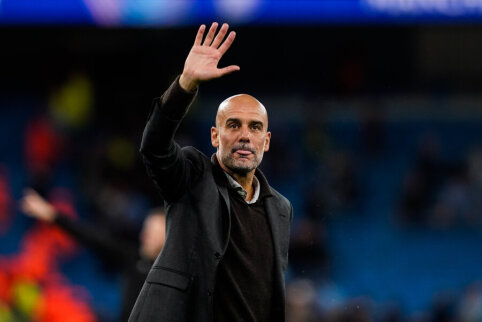 © EuroFootball.com
© EuroFootball.com
Until 2004 European Championship is less than fifty days away, we start a series of articles dedicated to the participants of the final round. And, in our opinion, the most fair would be to start with the hosts of the tournament - the Portuguese.
The Portuguese national team is rightfully considered one of the favorites of Euro-2004. At least from the perspective of their homeland.
This could be the sunset of their footballing careers, and the European Championships taking place at home may be the last for many of them. Even Luis Felipe Scolari, the winner of the 2002 World Cup, was invited to Portugal not only to solve the task of winning Euro-2004 but also to create a team from the new generation.
History
The history of Portuguese football shows that truly strong teams from this country have formed only twice: in the mid-70s and at the end of the last century. The last "strong" generation of the national team is still playing. And the current lineup of the team is strong in terms of their collective, although an inexplicable decline occurred in the 2002 World Cup, where true leaders did not emerge. On the other hand, the team of the 60s depended largely on the genius Eusebio. A decent team came together in Portugal in the mid-80s, but after a successful performance in the 1984 European Championship, the failure in Mexico in 1986 quickly buried the hopes. Now, facing Figo and his company, there is a challenge not to repeat the fate of their compatriots that played before them.
If Eusebio had not seen the light of day in 1942, Portugal could have been considered a less developed country in terms of football aspects until the late 80s. The final World and European championship tournaments often took place without the Lusitanians, and calling Portugal a strong team was never a tongue-twister.
In Portugal's football history, there were open misunderstandings, such as the 1:9 defeat against Austria in 1954 and the 2:4 loss to Luxembourg in 1962. But 1966 became the most memorable year for every Portuguese football fan. The national team finished third in the World Cup, defeating the USSR in the consolation final. However, if not for Eusebio, the Portuguese could have gone another round without glory.
July 23, 1966, could have become the darkest day for Portuguese football, which later generations would not want to remember. The quarterfinals of the World Cup. Liverpool. Up to the 25th minute, the North Korean team, which could not play football before or after this tournament, sensationally led against the Portuguese with a score of 3-0. Portugal, which had performed well in the group stage, scoring three goals in the Hungarian, Bulgarian, and Brazilian goals, was booking tickets to the semifinals upon learning that the Koreans had surprisingly beaten Italy and would be their quarterfinal opponents. But if not for the great Eusebio, who became the top scorer and best player of the tournament, they would have fallen short. The "Black Panther" from the Democratic People's Republic of Korea was unstoppable that night: he scored four goals in a row, two of which were penalties, and the Portuguese continued their quest for a medal.
In the semifinals, to be honest, the Eusebio team had no chance. In the England team, which was collectively strong and played at home, on July 26, 1966, at Wembley Stadium, the legendary Bobby Charlton emerged as their leader, scoring two goals. Eusebio only converted a penalty kick at the end of the match, thereby improving only his personal statistics.
In the battle for the third place, Eusebio sent his ninth goal of the championship to Lev Yashin's goal in the 12th minute. Eduardo Malofejevas equalized at the end of the first half, but in the final moments of the match, Torres brought the third place to the Portuguese.
Portuguese they waited 18 years for their next success. This visited them in 1984 in France. The Portuguese team reached the semifinals of the European Championship, where they faced the hosts. In dramatic matches held in Marseille, after defender Domergo's goal, the French led, until they conceded two goals in a row. However, that same Domergue equalized the score at the end of the match, and the brilliant Michel Platini brought victory to the French in extra time. No match for the third place was held, and the Portuguese, along with the Danes, won the bronze medals. They only got them back after sixteen years.
The football fans of 1986 in Portugal are also trying to forget. The last place in a group that included England, Poland, and Morocco. Again, the Portuguese national team disappeared into uncertainty for a long time. It was only at the beginning of the 90s that the young people of Portugal began to win various European championships, and the clubs gradually began to regain their former power. Then everyone talked about a new generation of Portuguese stars who, if not today, will win something big tomorrow. The bronze at Euro-2000 could theoretically be seen as a success for today's Portuguese team. But it was far from reaching the heights.
The Portuguese returned to the international stage in 1996 when they participated in the final European Championship tournament in England. At that time, Figo, Rui Costa, Paolo Sousa, and Joao Pinto were not experienced enough to tackle serious tasks. After advancing from the group stage, mainly thanks to the fact that the last match against the Croatian opponents meant nothing, the Portuguese national team stumbled in the quarterfinals against the Czechs. A year later, the Portuguese did not reach the final stage of the World Cup in France, but then they regrouped, went to Euro-2000 armed to the teeth.
Although it seemed at first that the future was filled with failure for the Portuguese, they surrendered 0-2 to the English in the 18th starting match. But then began a surge that continued until the decisive penalty kick, awarded in the extra time of the quarterfinals. After being down by two goals in the first whirlwind, Figo and Joao Pinto equaled the score, and then Nuno Gomes scored the winning goal. It was more difficult against the Romanians: a header shot in the last minute brought victory. In the last match, Sergio Conceicao scored a "hat-trick" against Germany, and the Portuguese advanced to the quarterfinals as the main favorites.
In the next stage, the Portuguese continued their strong attacking game, which was supported by the Turkish national team. In these matches, Nuno Gomes became the hero with two goals. In the semifinals, the Portuguese faced a severe disappointment, and some players, including Gomes, received long-term disqualification for trying to lynch the Austrian referee Benke, who risked awarding a penalty kick, after a linesman's instruction, nearing the end of extra time. Abel Xavier broke the shot next to the goal with his hand, and he took away the hopes of the Portuguese, who, showing probably the most beautiful football of all participants, had hoped to win the gold medals.
Today's Portuguese national team starkly differs from the team of 2000. Although the leaders remain the same, they have aged four years, and some have ended their appearances for the national team. Figo, Rui Costa, Fernando Couto, and Costinha hosting the European Championship at home might be the last chance to avoid becoming the lost generation of Portuguese football. Although Figo and Rui Costa are still stars in their clubs. Euro-2004 must answer the question of what will be remembered about Figo: the failure in Korea, where the Portuguese failed to advance from the group, or the triumph at home.
Star
Luis Felipe Madeira Figo was born on November 4, 1972, in the working-class district of Lisbon, Portugal. He initially played for the neighborhood team "Os Pastilhas." Later, at the age of 11, he was accepted into the legendary youth team of "Sporting" club. Even then, he stood out to the specialists.
The Portuguese winger career went smoothly. In 1989, he was a member of the Portuguese team that finished 3rd at the World U-16 Championship. Two years later, he won the U-20 World Championship held in Portugal. Later, he became a leader of the national team.
Figo made his debut at the age of 17 in the Portuguese Championship. He gained his first international experience at the age of 19. In 1995, he moved to Barcelona. Until then, he had won the Portuguese Cup and finished second in the Portuguese Championship.
In Barcelona, where he was coached by Johan Cruyff, Bobby Robson, and Louis van Gaal, the five-time best Portuguese footballer became a superstar. He was a key figure in the team that won the Cup Winners' Cup and the UEFA Super Cup in 1997, the Spanish Championship in 1998 and 1999, and the Spanish Cup in 1997 and 1998.
But Figo's best games were played in the 2000 European Championship in Belgium and the Netherlands. Unfortunately, his team only managed to reach the semifinals, where they lost to the future champions. After Euro-2000, Figo moved to Real Madrid for a record sum and immediately won the Spanish Championship.
The upcoming European Championship will be Figo's last as a national team player. He doesn't yet announce his future plans, or rather, he constantly changes them. The latest information: he plans to return to Sporting Lisbon, where he began his professional career. At the same time, Figo emphasizes that he does not intend to leave Real in the near future - his contract runs until June 2006. The footballer explained it as follows: he has been playing in Spain for a long time and has won almost everything possible in this country, so he does not rule out the possibility of changing environments and considering the option of returning to Portugal. Moreover, financial conditions are not a priority at Real, the defender noted.
The Weak Link
With all due respect to the championship hosts, the opponents of the Portuguese national team should not forget one fact. No matter how star-studded the attack and defense lines of this team may be, no matter how much hope the defenders instill, there is always a concern about the final link. Considering that the 34-year-old Vitor Baia, who has been guarding the goal for the past ten years, has left his best days behind, Luis Felipe Scolari may face a serious problem at the No.1 position.
Whatever is said about Vitor Baia, it should be noted that the most famous Portuguese goalkeeper is an overrated figure. He undoubtedly has excellent reflexes, but it's not just about being a living goalkeeper. How much the national team and his clubs - and Barcelona - have suffered from Vitor Baia, how much more they will have to endure. Not only is he not always stable, but he is often silent in the goal, like a deaf-mute, while his exits from the goal - a stab in the hearts, and he also has weak health. Baia generally recovers more than he plays. Whatever the case, the former record holder of the national team in terms of matches played is a cult figure in his homeland.
Although Baia has not been invited to the national team in recent years, he will likely be selected for Euro-2004. Although Luis Felipe Scolari may choose Ricardo Soares or Kim, who have less experience but play more stably.
Gərdişçilər asılında, Portugaliyanın zövq aldığı nəticələri gözləməklə yanaşı, Vitor Baia sözunu seçməkdə məyus edici hal. 1989-cu ildə, Portuqaliya U-16 dünya çempionatında 3-cü yeri tutan komandada iştirak edən Vitor Baia, Fərqli kimi, özünü qapıçılar qrupunda tanıtmağa çalış - bunun üçün Portuqaliyanın yetkin futbolu ilə də dolayı seviyyədə sarğışı olmasa da, Baia futbolu çox aşağı düşən bir ölkədir. Vartalanıcılar zəif ülkəlidlər. Vartinçilerin boyu 180 sm həddini asmadılar. Özündə South Mezo-Amerikadan getdikdə Vitor Baia Rusiyanın sakit şimalına baxmaqdansa, da üzvşimal gəzir. Portuqaliya vartalanıcıları tantanadağılaşır, və şim Ispaniya liganın dolabiysində solid bir qapıüsti qartdırmqı daha çox zorlaşdı. Qüruru. Portuqaliya məşqçilərini daxil edir, və yoxsa bir vatin banından daha böyük bir istidadla bağlı olanların sayısında müsbət olanların sayısında serf etmədən-əmloz Baia,-ı eləməlidir. Azərbaycan dilində Vitor Baianın tərcüməsi çox eləməlidir.
Hope
Hope can be characterized paradoxically. On the one hand, he cannot be called the hope of the Portuguese for Euro-2004, as the young man is already one of the essential players, and therefore the fans have every right to demand successful play from him, rather than expecting it.
On the other hand, Ronaldo is the main hope of the Portuguese for the future. Figo and Rui Costa are playing their last or penultimate games, and after the World Cup in Germany, they will probably end their careers. Ronaldo, on the other hand, will only be 21 in 2006. Figo tried unsuccessfully to break into the World Cup in the U.S. at this age.
Comparing these two footballers is difficult because Ronaldo is currently not as versatile as his older national team colleague. Figo can play on any flank and in the center, while Ronaldo usually leaves his left flank. However, that's not a problem - Luis Felipe Scolari can let these players play on the pitch at the same time.
Ronaldo was born 19 years ago in Funchal, on the island of Madeira, and made his first-team debut at Sporting Lisbon at the age of 17. Before that, the young defender gained experience with national youth teams from the age of 15. In his first and only season for Sporting, the young talent played 25 matches and scored 3 goals. His phenomenal play caught the attention of Manchester United club, and the English giants acquired Ronaldo for £12.25 million.
It is believed that Scolari will not give Ronaldo enough time at the European Championship. However, Cristiano is one of those players who can take advantage of any chance to show himself. After all, he is known for his remarkable play, not only from the bench but also from the field. Spectacular goals, no less impressive breakthroughs, accurate passes. Ronaldo's main feature is that he rarely spoils the game, and fans eagerly await something special from every appearance of the young Portuguese. And they usually get it.
At home, Ronaldo expects the same performance as for the club. His recent performances in his homeland have not been impressive, so English fans know him better. Ask any Manchester citizen, and he will say, "Ronaldo is a super player." And in their minds, they will have their guard, not the Brazilian "phenomenon." The 19-year-old defender has a chance that in Lisbon, Porto, and other cities in Portugal, Ronaldo could become such a star. At home, he has a chance. Azerbaijanis know Ronaldo.
